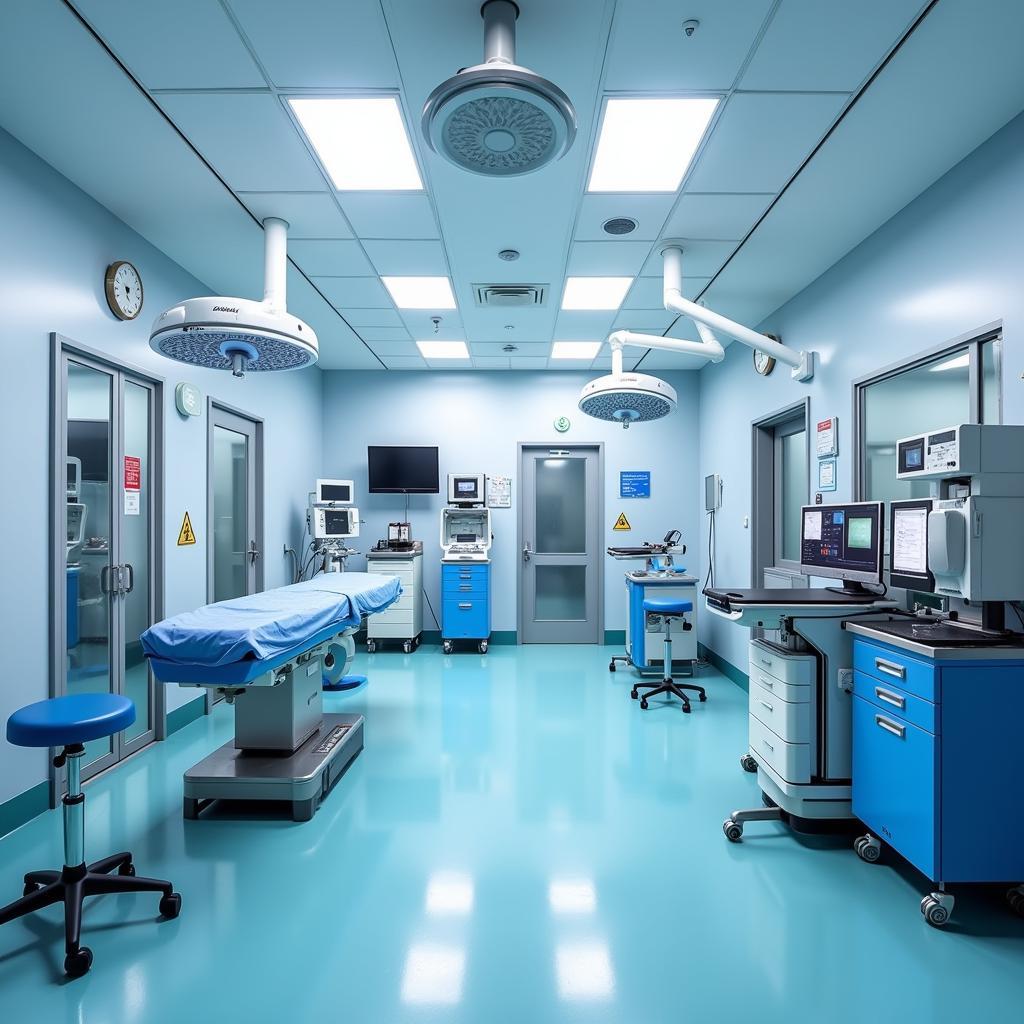Micro hospitals are rapidly changing the healthcare landscape, offering a new model of care delivery that prioritizes accessibility, efficiency, and patient satisfaction. But what exactly are micro hospitals, and how do they differ from traditional hospitals? This article delves into the Micro Hospital Definition, exploring their unique characteristics, benefits, and potential impact on the future of healthcare.
What is a Micro Hospital?
A micro hospital is a fully licensed and accredited healthcare facility that provides a reduced but essential range of medical services. Typically situated in convenient, easily accessible locations within communities, micro hospitals bridge the gap between urgent care centers and large, traditional hospitals.
Imagine having access to emergency care, inpatient services, and specialized treatments without the hassle of navigating a sprawling medical complex. That’s the convenience a micro hospital aims to offer. These facilities are designed with patient comfort and efficiency in mind, offering a more personalized and less overwhelming healthcare experience.
Key Features of Micro Hospitals
While specific services vary, most micro hospitals share several defining characteristics:
- Smaller Scale: Micro hospitals are significantly smaller than traditional hospitals, usually with 8 to 50 beds for overnight stays. This allows for more personalized care and a less chaotic environment.
- Focus on Essential Services: They concentrate on providing core medical services, including emergency care, surgery (both inpatient and outpatient), diagnostic imaging, laboratory testing, and pharmacy services.
- Advanced Technology: Don’t let the “micro” fool you. These facilities are equipped with advanced medical technology, ensuring high-quality care and accurate diagnoses.
- Shorter Wait Times: Due to their smaller size and focused approach, micro hospitals often boast significantly reduced wait times for both emergency and scheduled services.
Why Are Micro Hospitals Gaining Popularity?
The rise of micro hospitals can be attributed to several factors:
- Convenience and Accessibility: Strategically located in communities, they offer healthcare services closer to where people live and work, eliminating the need for long drives to major hospitals.
- Increased Efficiency: Their compact size and streamlined processes often translate to faster patient turnaround times and more efficient use of resources.
- Personalized Care: The smaller patient-to-staff ratio in micro hospitals allows for more personalized attention and fosters stronger patient-provider relationships.
 Comfortable and Welcoming Waiting Area in a Micro Hospital
Comfortable and Welcoming Waiting Area in a Micro Hospital
Micro Hospitals: Filling the Gaps in Healthcare
“Micro hospitals are proving particularly beneficial in addressing healthcare disparities in underserved areas,” says Dr. Emily Carter, a leading healthcare policy expert. “They bring essential medical services closer to communities that traditionally lack access to timely and quality care.”
This accessibility factor makes micro hospitals a crucial component of a more equitable and efficient healthcare system. By offering specialized care in a local setting, they reduce the strain on larger hospitals, allowing them to focus on complex cases requiring more extensive resources.
The Future of Micro Hospitals
As the healthcare landscape continues to evolve, micro hospitals are poised to play an even more significant role. Their adaptable nature allows them to quickly respond to changing community needs and incorporate emerging technologies.
Furthermore, micro hospitals are well-positioned to embrace value-based care models, which prioritize patient outcomes and cost-effectiveness. Their focus on preventative care and patient education can contribute to healthier communities and lower overall healthcare costs.
FAQs About Micro Hospitals
1. Are micro hospitals equipped to handle emergencies?
Yes, micro hospitals are equipped to handle a variety of emergencies. They have emergency rooms staffed with qualified medical professionals and the necessary equipment to stabilize and treat patients.
2. Do micro hospitals accept insurance?
Most micro hospitals accept a wide range of insurance plans, similar to traditional hospitals. It’s always best to confirm coverage with your insurance provider and the specific micro hospital.
3. What types of surgeries are performed in micro hospitals?
Micro hospitals are typically equipped to perform a range of surgeries, including general surgery, orthopedic surgery, and gynecological procedures. The specific types of surgeries offered vary depending on the facility.
 State-of-the-Art Operating Room in a Micro Hospital
State-of-the-Art Operating Room in a Micro Hospital
Seeking Specialized Care?
For specific medical needs or specialized treatments, explore the comprehensive services offered at Newton Wellesley Hospital Bowles Conference Center. Our team of expert physicians and compassionate staff are dedicated to providing you with the highest quality care in a comfortable and supportive environment.
Contact us today at 02437655121 or [email protected], or visit us at Số 298 Đ. Cầu Diễn, Minh Khai, Bắc Từ Liêm, Hà Nội, Việt Nam. Our dedicated customer care team is available 24/7 to assist you.